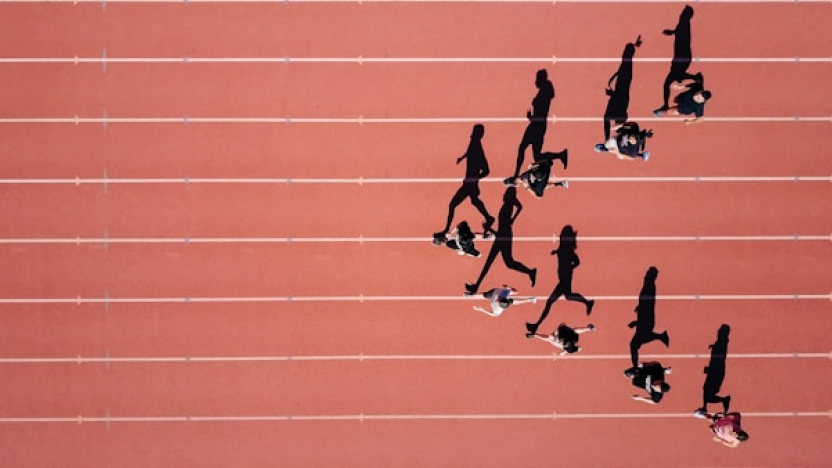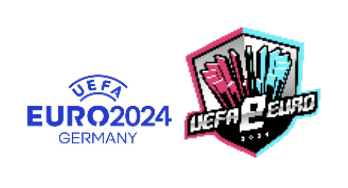Intellectual property in sports: The race for trademark protection

From the Euros to Wimbledon, the Tour de France and next the Olympic and Paralympic Games, 2024 has provided us with a summer of spectacular sporting events. We look behind the scenes at the trademark protection strategies that support their success.
When you think about sporting prowess, trademark protection is unlikely to be the first thought to cross your mind. However, trademarks play an essential role in global sporting events, such as the UEFA European Football Championship (the Euros), the Wimbledon Championships, the Tour de France and the Olympic and Paralympic Games.
Not only do organisers need protection for the name of the event itself, but merchandising and endorsement agreements provide a large income, with official sponsors of prominent sporting events paying large sums to be associated with the brand. The role of intellectual property in sports should not be underestimated. Trademark rights alone are essential for event organisers, as they provide the basis for licence and sponsorship agreements, and discourage ambush marketing.
Intellectual property in sports: Forward thinking at the Euros
The Union des Associations Européennes de Football (UEFA) is the official sporting body responsible for the organisation and running of the European Football Championships, which was hosted this year by Germany.
Watched by millions around the world and with official global sponsors of Euro 2024 including Adidas, LIDL and Booking.com, it’s little surprise that UEFA has a considerable budget for brand protection, but you may be surprised by how early it started planning.
UEFA first sought protection for marks associated with this year’s event as long ago as 2012, including registering the following trademarks:
- EURO 2024
- EURO 2024 GERMANY
- UEFA EURO 2024
This was followed by filings for stylised marks that reflected the branding used across the event. For example, in 2019, it registered the blue EURO2024 logo (pictured below left) and the pink and blue logo (pictured below right) as late as 2023:

Wimbledon’s challenge to protect its colour mark
We can learn much about the importance of intellectual property in sports from Wimbledon’s hard-fought campaign to protect its dark green and purple colourway. While the All England Lawn Tennis and Croquet Club has always been proactive in its trademark strategy, including registering multiple trademarks for relevant word and logo marks, the Club only secured protection for its historic and distinctive colour mark in 2016, more than a century after it first started using the colourway in 1909.
Previously, this lack of registered protection had prevented the Club from being able to tackle unauthorised third-party use of its signature colours on ticket resale platforms, which were attempting to pass themselves off as being connected to the official Wimbledon tournament.
Unfortunately, securing protection for a colour mark (in the absence of any word or logo element) is notoriously difficult and the Wimbledon colours were no exception. The Club had to go to great lengths to secure a registration for the green and purple colour trademarks (UK00003097108 and UK00003095405) shown below:

This included providing evidence of use in the form of a detailed survey showing that consumers associated these colours with the Wimbledon tournament and a substantial amount of pictorial evidence dating back to the early 1900s showing use of the green and purple colourway. Although the Club’s attempt to register the colour marks was initially unsuccessful, it was finally able to satisfy the UK Intellectual Property Office (UKIPO) that the distinctive character of its dark green and purple colourway had been established through its continuous use on 24 June 2016.
Trademark rights in action at the Tour de France
Despite the vital role of intellectual property in sports, event organisers do not always get things their own way, however, as can be seen in the recent case Société du Tour de France v EUIPO – FitX (TOUR DE X).
The Société (which owns the Tour de France trademarks) relied on its European trademark (EUTM) rights 'Tour de France' and 'Le Tour de France' to oppose an application by the German gym chain FitX to register the figurative mark ‘Tour de X’ at the European IP Office (EUIPO) based on likelihood of confusion. It argued not only that consumers would confuse the German brand’s products with its famous multi-stage bicycle race and associate the two as a consequence, but also that there was a risk that its use would damage, or benefit from, the reputation of the prestigious cycling event.
However, the EU General Court disagreed, with the judges concluding that: “The public will not confuse the marks despite the identity or similarity of the goods and services.” In addition, it decided that the enhanced distinctiveness acquired through use and the reputation of the earlier rights 'Tour de France' and 'Le Tour de France' did not extend to the element common to the rights at issue, namely the element ‘tour de’.
As confirmed by the court, 'Tour de France' is certainly a unique enough phrase to be deserving of trademark protection in the sports and apparel markets, but 'Tour de' on its own is not.
All eyes turn to the Olympics
And now, not long after the Tour de France has finished, the world is turning its attention to the Olympic and Paralympic Games – and so too the ambush marketers. On 19 July 2024, the US Olympic and Paralympic Committee (USOPC) filed a lawsuit in Colorado alleging that Prime Hydration, the drinks company owned by YouTubers Logan Paul and KSI, had infringed its trademarks on its most recent packaging by using trademarked symbols associated with the US Olympic team.
Prime is using the phrases 'Olympic', 'Olympian', 'Team USA' and 'Going for Gold' on its latest packaging and promotional materials, which also feature US athlete and Olympic basketball team member Kevin Duran.
USOPC’s lawsuit states that Prime “used the goodwill associated with USOPC’s intellectual property to sell and promote its products and its brand. This solicitation is evidenced by the defendant’s blatant use of USOPC intellectual property online and use of USOPC’s intellectual property on actual product.”
As we covered in our recent webinar on the IP challenges of the 2024 Olympic & Paralympic Games, the International Olympic Committee (IOC) and national organising committees take intellectual property (IP) and sponsorship as seriously as the competition itself, meaning that even well-meaning companies can easily find themselves on the wrong side of the law.
To find out how to navigate carefully through the complex landscape of intellectual property in sports, including how to stay within the rules and regulations that control Olympic and Paralympic branding, watch our on-demand webinar, speak to your Novagraaf attorney or contact us below.